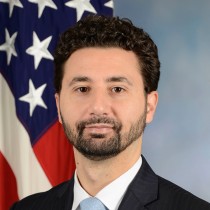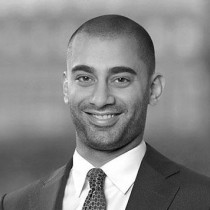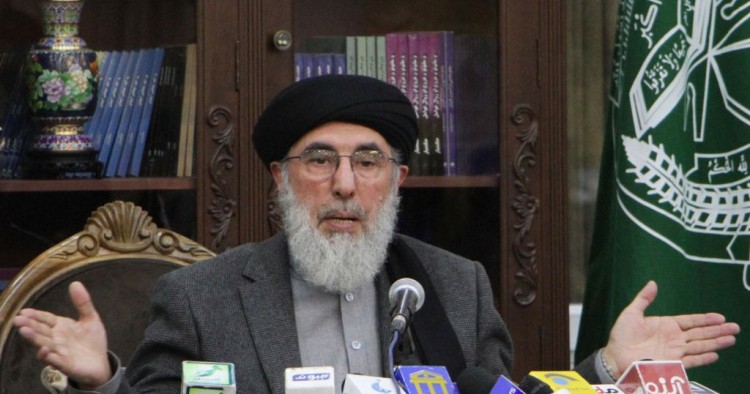This week's briefing on recent news and upcoming events in the region featuring Marvin G. Weinbaum, Charles Lister, Hafsa Halawa, Bilal Y. Saab, Anthony Elghossain, and Michael Sexton.
In Afghanistan a major player plans to jump ship
Marvin G. Weinbaum
Director for Afghanistan and Pakistan Studies

Over the weekend Gulbuddin Hekmatyar announced his Hezb-i-Islami party’s willingness, after the first round of peace talks, to discuss with the Taliban forming a partnership in opposition to the Ashraf Ghani government. Labeling the Afghan government as “weak and divided,” and accusing it of delaying negotiations, Hekmatyar admitted to his party’s sharing with the Taliban “mutual beliefs, values, and ideology.” This looming defection should have been predictable. Until four years ago, Hezb fighters had been at war against the Kabul government and its allies. Although his party’s contribution to the insurgency had largely played out, an Afghan government encouraged by Washington offered Hekmatyar a sweetheart deal in the belief his reconciliation would set a precedent for the Taliban to follow. Hekmatyar and his followers in the military wing of the party were showered with handsome rewards. But once the notoriously unscrupulous Hekmatyar had settled in Kabul, he became a thorn in the government’s side, more disruptive politically than he ever was militarily. Hezb immediately ignored provisions of the reconciliation agreement, above all the provision that his fighters lay down their arms and disband as a fighting force.
Hekmatyar’s plans took shape as the first round of talks were struggling to get beyond procedural hurdles. Hopes that a cease-fire could kick off the talks were quickly dashed when the Taliban made it abundantly clear that it had no appetite for even agreeing to an early reduction in violence. The Taliban announced cryptically that no progress toward a cease-fire could be made “unless the real cause of war was discussed.” There was clearer indication that the Taliban was uninterested in discussing the topic until all the foreign troops were gone, presumably in the spring. Plainly, continued military pressure boosts the Taliban’s bargaining power in the negotiations. But with talks possibly going on for months, conceivably years, the Taliban leadership has to worry that with a cease-fire the insurgency will lose its momentum and its fighters will drift away, some joining with the more intransigent Islamic State-Khorasan Province. This seems especially likely should in negotiating the leaders give the impression of compromising on the promise of a true Islamic government.
Hekmatyar’s overture to the Taliban may be only the first if, with foreign forces leaving, Afghan politicians sense the war moving steadily in the Taliban’s direction. Historically, regime change in Afghanistan has been decided not so much by overwhelming military force as through key defections.
This article was co-authored by Hamid Safi, Ghasharib Shoukat, and Jack Stewart, research assistants to Marvin G. Weinbaum.
Amb. Jeffrey’s surprise visit to northeastern Syria
Charles Lister
Director of Syria Program and Countering Terrorism & Extremism Program

U.S. special representative for Syria, Amb. James Jeffrey, paid a surprise visit to northeastern Syria on Sunday, meeting with senior Kurdish political leaders and the leadership of the Syrian Democratic Forces (SDF). The visit focused new attention on intra-Kurdish talks that have been ongoing for months, principally between the Democratic Union Party (PYD) and the Kurdish National Council (KNC). In his meetings on Sunday, Amb. Jeffrey reportedly offered to sponsor any final agreement, though the talks remain stymied by many challenging issues — including the status of KNC prisoners in PYD detention; the PYD’s links to the terrorist-designated Kurdistan Workers’ Party (PKK); and the prospective deployment of pro-KNC Kurdish Peshmerga forces to the region.
Amb. Jeffrey’s visit also came as the U.S. military presence in Syria’s sensitive northeastern region received a boost, with 100 additional troops, a batch of six M2A2 Bradley Fighting Vehicles, and Sentinel radar systems arriving into the Jabal Ghul airstrip in Hasakeh on Friday. Though countering ISIS continues to define the day-to-day campaign on the ground, this latest reinforcement was clearly a response to a string of Russian provocations, including a vehicle-on-vehicle skirmish on Aug. 25, that left four American soldiers mildly injured. Until now, these incidents have reflected Russian brinkmanship, as Russian troops and helicopters routinely violate deconfliction lines in an attempt to expand their area of influence while testing American red lines. The Sentinel radar systems will provide troops with an enhanced ability to detect incoming Russian helicopters, while additional U.S. fighter jet and Apache helicopter resources have also reportedly been made available to support ground patrols.
On the core mission, the U.S. and its SDF partner continue to target ISIS cells, which appear to be slowly growing in confidence and ability. On Aug. 30 ISIS launched a series of concurrent cross-border raids between Iraq and Syria — the first since the defeat of its territorial caliphate in March 2019. In central Syria, in territories administered by the Syrian regime, ISIS is on a clear path of resurgence, with multiple attacks daily in an expanse that stretches across five governorates.
Al-Kadhimi’s anti-corruption purge
Hafsa Halawa
Non-resident Scholar

Last month, Iraqi Prime Minister Mustafa al-Kadhimi launched an “Anti-Corruption Committee” with the aim of tackling one of the country’s biggest issues. Al-Kadhimi has announced his desire to target “major corruption files” and last week saw the first results, including the arrest of two government officials — the head of Iraq’s Retirement Fund and the chairman of Baghdad’s Investment Commission — and one business leader, the head of the electronic payment company Qi Card. Official charges have not yet been issued against any of the three individuals. In addition, a travel ban has been imposed on the Baghdad-appointed governor of Kirkuk, who has been summoned to court on charges of misuse of public funds in relation to a school-building project. Arrest warrants related to the project were also issued for 23 other employees of the Kirkuk governorate and general directorate of education. At the time of writing, there were alleged to be outstanding arrest warrants for as many as seven other officials as well as part of the anti-corruption drive.
As one might expect considering the Iraqi political landscape, voices including the protest movement and Grand Ayatollah Ali al-Sistani have welcomed the new government’s anti-corruption drive, while a number of political parties have lambasted the PM for the recent moves, which came the same week as a significant government shake-up and a flurry of new appointments.
Iraq remains one of the most corrupt countries in the world, ranked 162 out of 200 on Transparency International’s corruption perceptions index (2019). Actual and perceived corruption has greatly hindered Iraq’s attempts to transition to democracy since the 2003 invasion. Iraq’s government and Parliament, both in Baghdad and the Kurdistan Regional Government (KRG), have repeatedly been paralyzed by the endemic patronage and corruption that enriches the political elite and entrenches the ethno-sectarian political system. The October Uprising and continuing protests within the KRG have attempted to force a reckoning with this power structure, aiming to dismantle corruption networks, but have faced a violent response from state and non-state actors.
Continued corruption has stalled reform of Iraq’s ailing economy, hampered any improvement in public service delivery, and hindered the reconstruction of destroyed provinces following a number of wars. Instead, Iraq’s infrastructure and institutions have been left to crumble under the weight of corrupt businessmen and politicians, while the rule of law has been circumvented to enrich patronage circles.
PM al-Kadhimi is likely to face continued backlash from the political elite while he attempts to gain support from the broader public through these actions. However, merely launching an attack on corruption networks will not address the much larger and defining challenge that threatens Iraq’s democratic development. “Corruption committees” are not enough to instill trust and faith in a system that has long since lost legitimacy and credibility in the eyes of citizens. The ability to follow through on such efforts depends on tackling a much deeper erosion of the rule of law in the country. Such a challenge may prove elusive for this “transitional” prime minister or — should the political elite emerge victorious — the mark of his downfall.
Qatar's likely and long-overdue major non-NATO ally status
Bilal Y. Saab
Director of the Defense and Security Program

Last week, a Reuters report quoted Timothy Lenderking, the U.S. deputy assistant secretary of state for Gulf affairs, saying that Washington was “going to move ahead … with designating Qatar a major non-NATO ally.” That status, should it be confirmed, bestows certain benefits to its holder including preferential access to U.S. military hardware and technology.
It's not clear to me what this potential award grants Doha, at least practically speaking. Qatar has very few restrictions when it comes to U.S. arms sales because of its close ties to Washington and considerable financial resources. There's nothing Washington likes more than an eager customer who always comes with cash.
Qatar doesn't really need this award. That said, it’s good to have it, and it’s better late than never because it symbolizes that security cooperation between us and the Qataris is growing. If you ask me, Qatar is more deserving of the title than, say, Kuwait, Morocco, or Tunisia for no other reason than what the country has offered us in terms of access, overflight, and basing.
It’s hard to find a country in the region that can match what the Qataris provide: a forward headquarters for U.S. Central Command (CENTCOM) in al-Udeid Air Base, built with Qatari money and in the process of being upgraded and expanded also with Qatari money. Home of the Combined Air Operations Center (CAOC) as well as various U.S. air assets including fighters, bombers, tankers, and reconnaissance planes, al-Udeid is indispensable for CENTCOM’s military operations across the region and beyond. It has no equal.
I'm left wondering why now. Why is Washington considering granting the Qataris this status at present? Maybe it’s a carrot to induce cooperation on the years-long feud among Gulf Arab nations. Maybe it has nothing to do with it, and Washington felt the need to come up with a public deliverable from the latest U.S.-Qatar strategic dialogue. It doesn’t matter. What’s relevant is that this award is long overdue, even if it’s not a game changer in bilateral security ties.
Lebanon’s leaders fight as the country burns
Anthony Elghossain
Non-resident Scholar

Lebanese leaders are at it, again: They’re feuding and fighting as Lebanon — a literal, proverbial dumpster fire of their own making — burns. They’ve not yet formed a new government, a month after statespersons launched an international initiative destined for failure because its patrons have never had a clear — let alone correct — sense of what would, will, or should constitute success; two months after a Beirut blast that claimed 200 lives, 6,000 casualties, 40,000 buildings, and billions of dollars in damage; and a year after the October revolts, which coincided with but did not cause overlapping fiscal, monetary, financial, and economic crises.
All parties in Lebanon are problematic, but some parties are more problematic than others. Hezbollah and the Amal Movement have been blocking this cabinet — behaving, as they have repeatedly since the Cedar Revolution of 2005, with stunning bad faith made possible only by force and threat of force. They’ve made different demands over the past week. Indeed, they’ll likely make more in the future — as they did, for instance, throughout 2018 government-formation negotiations. Working with their regional patrons, these factions are maneuvering in the Lebanese arena to contain rivals, maintain instruments of influence, and hold hostage any cabinet as part of a broader, complex struggle in the Levant.
First, Amal and Hezbollah are countering former Lebanese premier Saad Hariri. While they maintain an uneasy détente and need each other (to different extents), these factions will not allow Hariri to do internationally and through absence from government what he was unable to do domestically and through presence in it: acquire influence and leverage over them. Second, Amal and Hezbollah are trying to maintain instruments of influence in the cabinet. They’ve insisted — above all, not for the first time — that the finance minister be a Lebanese Shi’a (to equalize formal, institutional influence in an executive branch). Third, they’re demanding formal, institutional ways to topple, block, or otherwise threaten the next Lebanese cabinet — claiming the right, for instance, to nominate all Lebanese Shi’a ministers. (They could conceivably, and likely will, make other demands to achieve that objective.)
Amal and Hezbollah are behaving in bad faith and engaging in caricature constitutionalism, as they’ve done for the past 15 years. They’re again demanding and receiving what they incessantly and flagrantly deny and withhold from others — and what they, incidentally, do not need given their arsenal and the way elites practice politics in Lebanon. Meanwhile, their adversaries — especially Hariri — will again need to make virtues out of realities rooted in their weaker positions, poor statecraft, and worse luck in patrons.
Eventually, Lebanese leaders will create a cabinet. Even so, they’ll keep squandering time, energy, money, and patience — all finite, all running low. In this new era of independence (2005-20), which has lasted as long as the Lebanese Civil War (1975-90) and occupation era (1990-2005), they’ve created constitutional crises, institutional vacuums, political gridlock serially, repeatedly, concurrently, and almost permanently. Now they, as Lebanon’s own president says, see that Lebanon may be going “to hell.” Most people in Lebanon, though, may feel the state’s been there for years. And while all factions have helped drag Lebanon to that hell, none have done more than the self-styled Party of God.
Iranian hacking under scrutiny as US pursues “snapback” sanctions
Michael Sexton
Fellow and Director, Cyber Program

A flurry of U.S. indictments and advisories targeted Iranian and Iran-linked hackers last week as the U.S. has begun pursuing new sanctions on Iran under the “snapback” provision in the 2015 nuclear deal. First, the FBI charged two hackers — one in Iran and one in the Palestinian territories — for website defacements on Tuesday, followed the next day by two more charges levied against Iranian nationals for a more sophisticated cyber espionage campaign. These coincided with an advisory alert by the Department of Homeland Security Cybersecurity and Infrastructure Security Agency of new virtual private network exploitation techniques leveraged by Iranian cyber threat actors, as well as new hacking-related sanctions imposed by the U.S. Department of Treasury. According to CyberScoop, these actions are part of a coordinated U.S. campaign to clamp down on Iranian hacking.
These U.S. government actions coincided with new scrutiny by private actors as well. The German Marshall Fund’s Alliance for Securing Democracy published a thorough report Thursday on the logic and themes of Iranian government influence operations, in the context of its broader authoritarian strategy. Check Point, an American-Israeli cybersecurity company, released a report Friday on a previously unrevealed Iranian surveillance campaign targeting expats and dissidents.
A critical concern of policymakers in containing Iranian destabilizing activity is the diversity of tools in the Iranian government’s toolkit: cyber activity, nuclear development, conventional military activity, and support for terrorists and militias. As the bottom-line U.S. policy is currently to ratchet up pressure on Iran for its nuclear program, last week makes it apparent that it is unlikely to escape scrutiny for its activity in cyberspace.
A Pakistan where justice is in the dock
Marvin G. Weinbaum
Director for Afghanistan and Pakistan Studies

Accustomed to news of the coronavirus, politicians bickering, clashes with India, or domestic militant attacks, Pakistan’s public has recently been roused by issues of justice, including a shocking rape, violence over blasphemy charges, controversial criminal legislation, and new corruption charges.
A recent motorway gang-rape case has raised the nation’s ire. Public outrage was directed against a system seen as protecting rapists. A foreign woman traveling with her children was attacked while on Pakistan’s prized Lahore-Islamabad motorway. Protests were organized by activists, feminists, and prominent celebrities after Punjab’s top police chief laid blame on the victim. As these protests were taking place, a massive rally of Sunni agitators gathered outside the Jinnah Memorial in Karachi denouncing Shi’as as infidels. In what has been a history of filings of bogus blasphemy cases, often directed against Christians and Hindus, a rising number have been raised against members of the Shiite community, already subject to increased nationwide violence blamed by many on the Saudi-Iranian rivalry.
Last week Pakistan hastily passed three bills designed to satisfy the Financial Action Task Force, an international grouping that has threatened the country with harsh economic penalties for failure to crack down on terror financing and money laundering. The government’s legislation also includes a criminal law bill vigorously opposed by opposition parties that makes defaming the armed forces a crime punishable by two years of imprisonment or a heavy fine. This comes at a time of tightened military control over television and social media content and the abduction of journalists who have displeased the military.
Separately, last week, seeking to force Nawaz Sharif’s return to Pakistan, the Islamabad High Court transmitted to the Pakistan embassy in London non-bailable arrest warrants for the former prime minister. Politically inspired arrest warrants were also issued by a Lahore accountability court for the wife and a daughter of Pakistani Muslim League-N leader Shehbaz Sharif as part of money laundering charges, and the Islamabad court sacked the chairman of Pakistan TV and other high-ranking government officials whose appointments were deemed illegal.
As tensions mount between Pakistan’s religious extremists, progressive activists, and the military, some see the judiciary as well positioned to strike a balance. But the ability of the courts to mediate and ensure a steady and fair quality of justice is problematic given their at times deference to powerful political forces and tendency to overstep their judicial mandate.
This article was co-authored by Ghasharib Shoukat, Hamid Safi, and Jack Stewart, research assistants to Marvin G. Weinbaum.
Photo by Haroon Sabawoon/Anadolu Agency/Getty Images
The Middle East Institute (MEI) is an independent, non-partisan, non-for-profit, educational organization. It does not engage in advocacy and its scholars’ opinions are their own. MEI welcomes financial donations, but retains sole editorial control over its work and its publications reflect only the authors’ views. For a listing of MEI donors, please click here.













